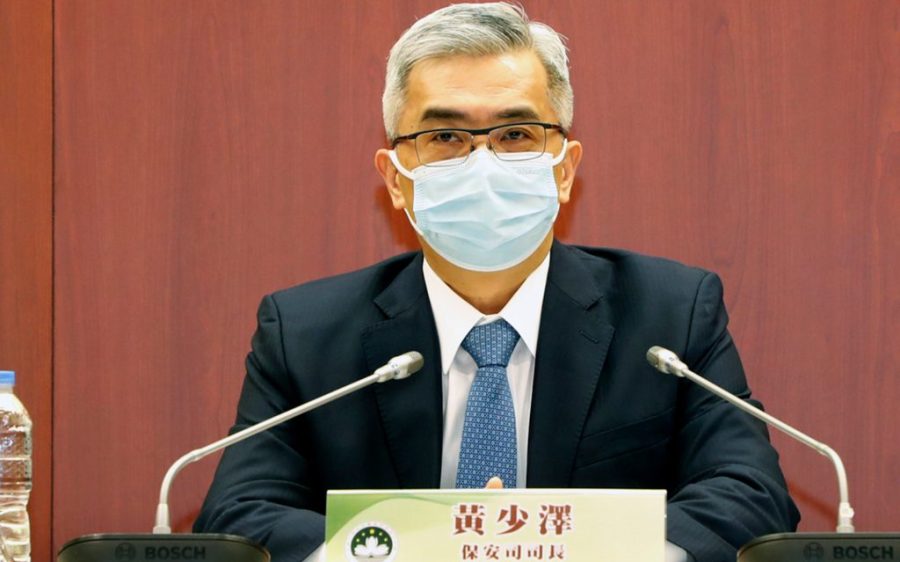The Macao Government launches today a 45-day public consultation on the amendments to the law safeguarding national security approved in February 2009.
The Secretary for Security, Wong Sio Chak, said during a press conference today, that the concept of state secrecy provided in the revised Law Safeguarding National Security will be defined as future secrecy law.
Wong also said that safeguarding national security is the way forward for the economic development of Macao.
During today’s press conference the Secretary for Security claimed that there are interventions of foreign forces in Macao and that it is necessary to adjust the Law Safeguarding National Security to address it.
In the press conference, Wong said that, as in Hong Kong, the Macao authorities are on the lookout for interventions by foreign forces as happened in the neighbouring region in 2014 and 2019, and stressed that of the 8,000 associations registered in the city, only one has a political nature.
The Secretary for Security guaranteed that individuals who may have violated the Law Safeguarding National Security before its revision comes into force will not be punished, i.e. there is no retroactivity of crimes committed before the amendment to this legal framework.
“We will not punish the people who committed the acts before the revision of the law,” Wong said, adding that the government cannot “ask for the accountability of the people who committed the crimes before.”

According to the government, the revision of the Law Safeguarding National Security is intended to improve the legislative text now in force concerning the crimes of “secession from the state”, “subversion against the Central People’s Government”, “sedition” and “subtraction of state secrets”.
Wong indicated the details and definition of “state secrets”, will be defined in a separate Secrecy Law that the government will propose in the due time.
“If the judges of national security cases have confusion about what constitutes ‘state secrets’, they could ask the central government through the Macao government,” he said.
Wong also said that most national security trials will be available to the public, and only some will be partially or entirely held behind closed doors when judges decide the content concerns state secrets.
According to the new text, the crime of subversion against the Central People’s Government would be renamed as a crime of subversion of the political power of the State, thus referring not only to the State but to all organs of central political power.
Acts of subversion would include not only violent acts but also illicit non-violent acts said the new law.
In another crime, sedition, the proposal also specifies the incitement of third parties to commit acts of rebellion that undermine the stability of the State.
The so-called crime of “subtraction of state secrets” would be renamed “violation of state secrets”.
The government also adjusts the typification of the crime agents and instead of political organisations or associations, criminals it would become all organisations or associations, as well as the designation of “foreign” would be replaced by “from outside Macao Special Administrative Region”.
The document also reviews the “establishment of links by Macao political organisations or associations with foreign political organisations or associations to commit acts against State security”.
The new law will also consider the punishment of any individual who commits acts against national security, even outside Macao.
The measure of “interception of communication of information” is also introduced in the new legislation.
According to the consultation document, made available this Monday and quoted by Radio Macao, law enforcement institutions may obtain directly from telecommunication operators or network communication service providers, communication records and user data that are regularly subject to legal supervision by the Public Prosecutor’s Office.
A “temporary restriction on leaving borders” measure is also introduced in the new law but only the judge can take this measure that is intended to ensure that the suspect cooperates in a relatively short period with the investigative work and collection of evidence.






